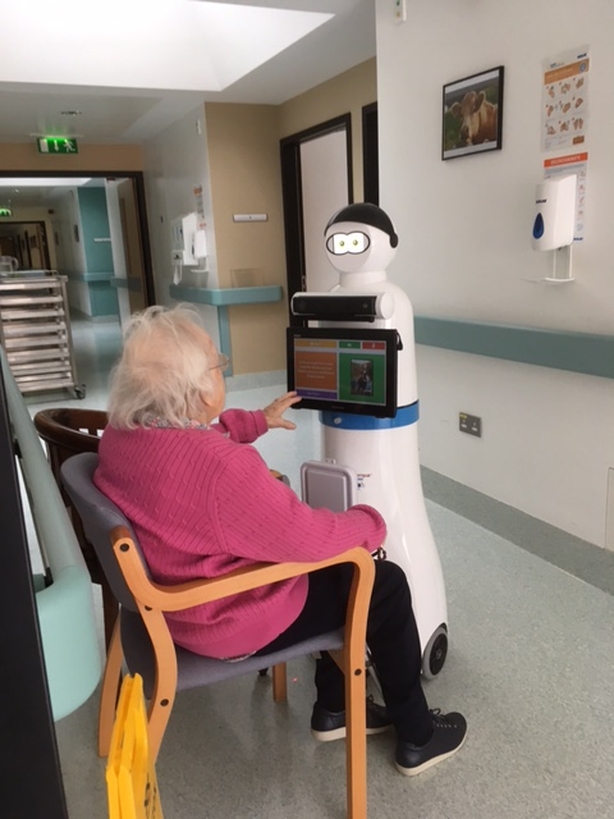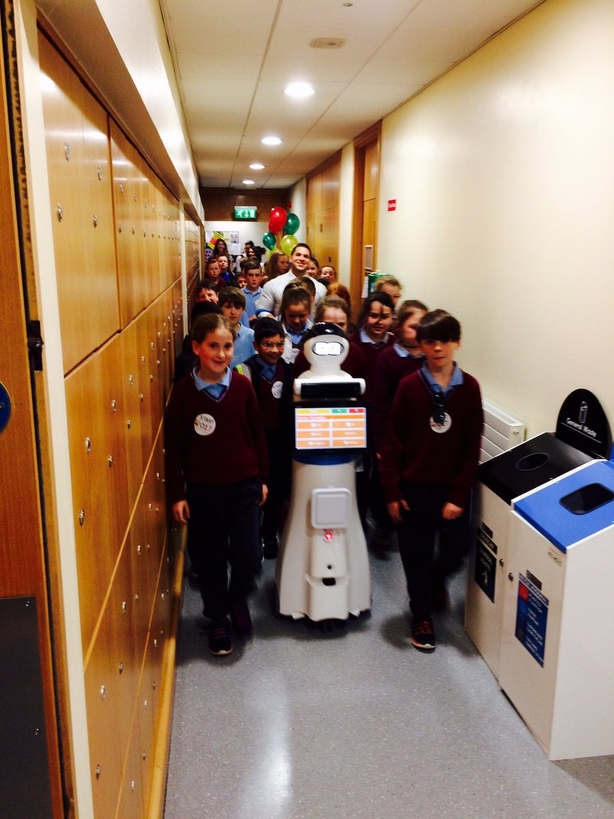Report: MARIO is a care robot for people with dementia who is currently been put through his paces in a Co Galway nursing home
Loneliness is a key public health concern across many age groups and especially for older people with dementia. We know that social health and social connectedness are important to the quality of life of people with dementia. Human companionship is the best way of promoting social health but the reality is that our health care services do not have the resources to provide this service.
Recognising this problem, NUI Galway put together a consortium of experts from the health care sector, robotics, industry and dementia groups, to work together to develop a companion robot for people with dementia. This led to the three year EU Horizon 2020 MARIO project - managing active and healthy ageing with use of caring service robots- funded by the Framework Programme for Research and Innovation. It’s a project involving five EU countries and a team of up to 40 people.
We need your consent to load this rte-player contentWe use rte-player to manage extra content that can set cookies on your device and collect data about your activity. Please review their details and accept them to load the content.Manage Preferences
The MARIO robot has been developed and tested by people with dementia in residential care in Ireland, community care in the UK and in a hospital setting in Italy to ensure the robot is fit for purpose. At each stage of development, we tested the robot and, based on user feedback, modified and developed the robot to give him the functions he needs to be the companion robot that people with dementia want.

MARIO can now play your favourite music, help you to draw pictures and play games to promote cognitive ability. He can also connect you to your friends and family, share your family photos with you and reminiscence on old times. MARIO’s main function in life is to connect people with dementia to family, friends, carers and the community at large thereby maintaining and increasing their social interactions and reducing loneliness.
Right now, MARIO is in a nursing home in Loughrea meeting and interacting with people with dementia, their family, friends, children and grandchildren. Children really love to interact with MARIO and he is often a topic of discussion connecting grandchildren with grandparents residing in the nursing home. MARIO was also a great hit when he attended the Trials Methodology Research Network (TMRN) clinical trials day for school children in NUIG. He also attended the recent Alzheimer Europe conference where he met the current chair of Alzheimer Europe, Iva Holmerová.

Initial feedback suggests that MARIO has had an overall positive impact on the residents in the nursing home. Currently we are evaluating the difference in how people with dementia feel before and after interacting with him. Are they happier and more likely to chat to others as a result of encountering MARIO? Do they look forward to seeing him and most importantly do they feel less lonely and isolated? The final results are anticipated in spring 2018 and will be shared with the public here in Ireland and across Europe.
When the project ends, MARIO will still need some further finetuning to make him the best companion robot he can be, so he won’t be quite ready to roll off the conveyer belt just yet. But we believe that companion robots will be more readily available and more commonly seen in health care settings in the next five to ten years.
The outcomes of the MARIO study will play a key role in helping to shape the future use of social robots in our health services. We will see how robots can be used to support older people and help them to retain their abilities and independence for longer Care robots can reduce carer burden and ultimately enable older people with dementia to stay socially connected and feel less lonely.
Find our more about the MARIO project here.



